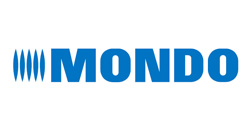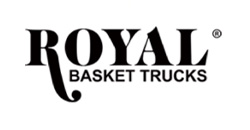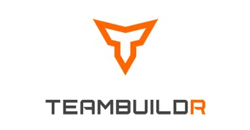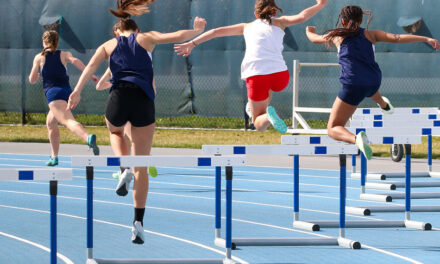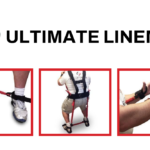High school athletic directors hold a crucial position at the nexus of education and sports. While their role is to champion athletic excellence, sportsmanship, and teamwork, it is fraught with a wide array of challenges. From managing tight budgets and maintaining top-notch facilities to navigating the intricate web of scheduling and handling the intense expectations of parents, the role is multifaceted. Add to this the imperative of ensuring the safety and well-being of student-athletes, and the magnitude of their responsibilities becomes evident.
However, every challenge presents an opportunity for growth and innovation. By leveraging community partnerships, utilizing advanced technology, and promoting open communication, many of these challenges can be effectively mitigated. The key lies in proactive planning, fostering a culture of collaboration, and staying informed and adaptable in a constantly evolving landscape.
Financial Constraints
Perhaps one of the most pressing challenges is managing the department’s budget. With limited funds available, athletic directors must make tough decisions on which sports get priority, equipment upgrades, facility maintenance, and other essential needs. Balancing the needs of multiple teams and ensuring fairness often requires creativity and resourcefulness. Financial constraints can also limit opportunities for students, causing some promising athletes to miss out on important experiences.
Fundraising and community partnerships can alleviate budget constraints. Consider hosting annual fundraising events, reaching out to local businesses for sponsorships, or launching online crowdfunding campaigns. Alumni engagement can also be a valuable source of financial support.
Maintaining Facilities
The physical condition and accessibility of sports facilities are a direct reflection of a school’s commitment to its athletic programs. Athletic directors must ensure fields, courts, pools, and other facilities are in top condition. This includes scheduling regular maintenance, ensuring safety standards are met, and overseeing renovations or expansions. However, with tight budgets and aging infrastructure, this can be a daunting task.
Formulate a strategic long-term maintenance plan. Instead of reactionary repairs, prioritize preventive maintenance. Partner with local businesses or skilled community members who can offer services at discounted rates or as in-kind donations.
Scheduling Conflicts
Coordinating schedules for various teams can be a logistical nightmare. Athletic directors must consider local and regional league commitments, school academic calendars, facility availability, and transportation logistics. With so many variables, conflicts are inevitable, requiring directors to possess excellent organizational and communication skills.
Utilize advanced scheduling software specifically designed for athletic programs. Engage coaches in the scheduling process to ensure a collaborative approach, reducing potential conflicts and overlaps.
Eligibility Issues
Ensuring that student-athletes meet academic and behavioral standards set by the school and state associations is crucial. Athletic directors must be vigilant in checking grades, attendance records, and disciplinary issues, ensuring that the integrity of the athletic program remains intact. They must also deal with the sensitive task of informing students and parents if a student is ineligible due to academic or behavioral reasons.
Implement a proactive monitoring system where academic advisors collaborate with the athletic department to regularly track student-athlete performance. Offer tutoring or mentorship programs to help athletes stay on track academically.
Conflict Resolution
In competitive environments, conflicts are bound to arise. This can be between coaches, between players, or even between parents and coaching staff. An athletic director must act as a mediator, possessing the skills to handle these situations with fairness, sensitivity, and decisiveness. Handling these situations properly is crucial for maintaining the morale and unity of teams and the athletic department as a whole.
Establish a clear and transparent grievance process. Hold regular communication sessions with athletes, coaches, and parents, ensuring everyone is on the same page. Investing in conflict resolution training can also be beneficial.
Staffing and Training
Hiring qualified coaches and staff is paramount to the success of any athletic program. Athletic directors must ensure that coaches are not only skilled in their specific sport but also share the school’s values and priorities. Furthermore, consistent training sessions need to be arranged to ensure coaches stay updated on safety protocols, training methodologies, and league regulations.
Regularly host professional development sessions and workshops for coaches. Utilize hiring committees that involve stakeholders from different aspects of the school community to ensure a holistic evaluation of potential hires.
Navigating Parent Expectations
Parents are often deeply invested in their child’s athletic pursuits. While this passion can be a positive driving force, it can also result in unrealistic expectations and demands. Athletic directors must navigate these expectations, managing the thin line between being supportive of parents’ concerns and maintaining the autonomy and integrity of the program.
Host preseason meetings with parents to set clear expectations and outline the program’s mission and values. Create open lines of communication and regularly update parents on team progress and decisions.
Adapting to Change
Whether it’s a change in state or national regulations, shifts in school demographics, or the introduction of new sports and activities, the world of high school athletics is constantly evolving. Athletic directors must remain adaptable, ensuring their programs are in line with current standards while also being open to innovation and growth.
Stay connected with local, state, and national athletic associations to remain updated on changes. Regularly attend conferences or workshops, and consider joining professional networks to share knowledge and resources.
Promoting Sportsmanship
While winning is a natural objective in sports, it shouldn’t overshadow the importance of sportsmanship, respect, and teamwork. Athletic directors play a critical role in setting the tone for their department, ensuring that coaches and athletes prioritize these values both on and off the field.
Infuse sportsmanship into the culture of the program. Recognize and reward displays of good sportsmanship both in practices and competitions. Implement programs or workshops that highlight the importance of respect, teamwork, and fair play.
Health and Safety
Perhaps the most critical responsibility is ensuring the safety and well-being of student-athletes. This involves being updated on the latest health and safety protocols, arranging for medical checks, ensuring proper equipment use, and ensuring that coaches are trained in first aid and emergency procedures.
Prioritize athlete safety by requiring regular medical checks and keeping a certified athletic trainer on staff or retainer. Ensure all coaches undergo safety training and are CPR and first-aid certified. Invest in high-quality equipment and ensure it is checked and replaced regularly.
In essence, the high school athletic director’s journey is a balancing act between upholding the integrity of the program and ensuring the holistic development of student-athletes. By understanding the challenges ahead and employing strategic solutions, these dedicated professionals can shape an athletic program that not only celebrates sports achievements but also instills lifelong values in its participants.
Athletic Suppliers Who Can Help





